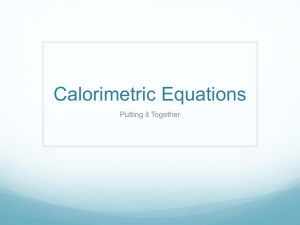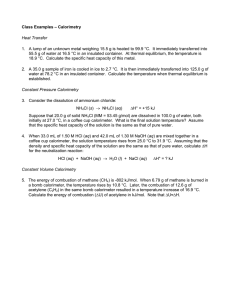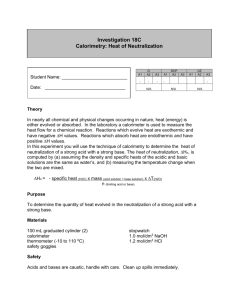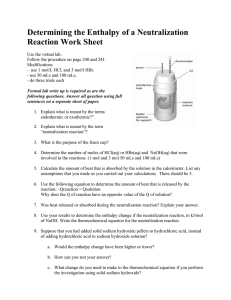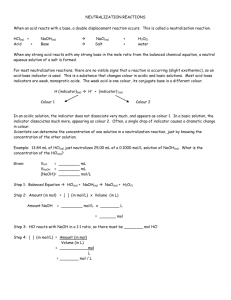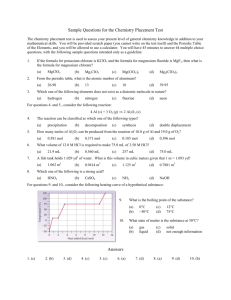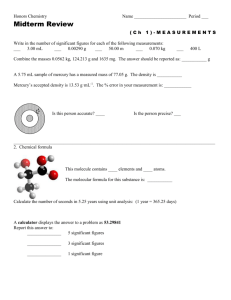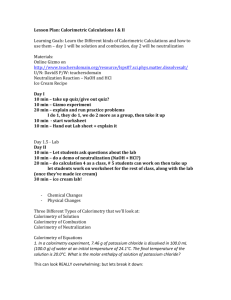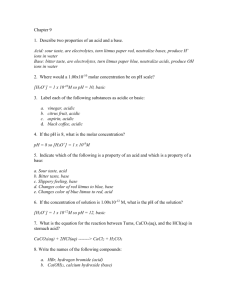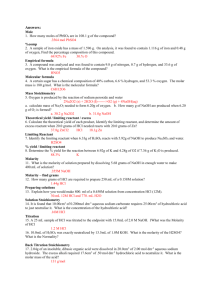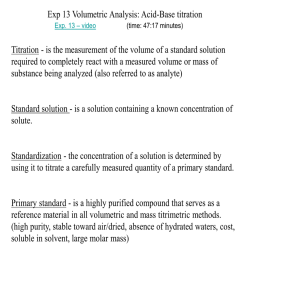Determination of Enthalpy of Neutralization by Calorimetry
advertisement
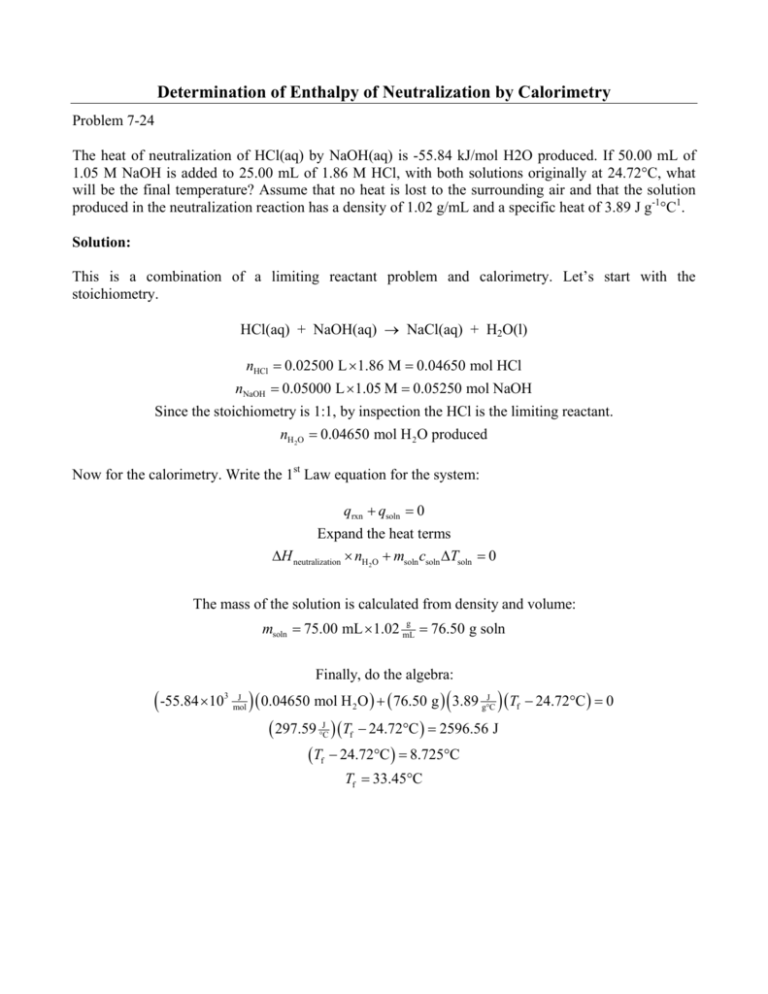
Determination of Enthalpy of Neutralization by Calorimetry Problem 7-24 The heat of neutralization of HCl(aq) by NaOH(aq) is -55.84 kJ/mol H2O produced. If 50.00 mL of 1.05 M NaOH is added to 25.00 mL of 1.86 M HCl, with both solutions originally at 24.72°C, what will be the final temperature? Assume that no heat is lost to the surrounding air and that the solution produced in the neutralization reaction has a density of 1.02 g/mL and a specific heat of 3.89 J g-1°C1. Solution: This is a combination of a limiting reactant problem and calorimetry. Let’s start with the stoichiometry. HCl(aq) + NaOH(aq) → NaCl(aq) + H2O(l) nHCl = 0.02500 L ×1.86 M = 0.04650 mol HCl nNaOH = 0.05000 L ×1.05 M = 0.05250 mol NaOH Since the stoichiometry is 1:1, by inspection the HCl is the limiting reactant. nH2O = 0.04650 mol H 2 O produced Now for the calorimetry. Write the 1st Law equation for the system: qrxn + qsoln = 0 Expand the heat terms ∆H neutralization × nH2O + msoln csoln ∆Tsoln = 0 The mass of the solution is calculated from density and volume: g msoln = 75.00 mL × 1.02 mL = 76.50 g soln Finally, do the algebra: ( -55.84 ×10 3 J mol ) ( 0.04650 mol H O ) + ( 76.50 g ) ( 3.89 ) (T 2 J g°C ( 297.59 °CJ ) (Tf − 24.72°C ) = 2596.56 J (Tf − 24.72°C ) = 8.725°C Tf = 33.45°C f − 24.72°C ) = 0

